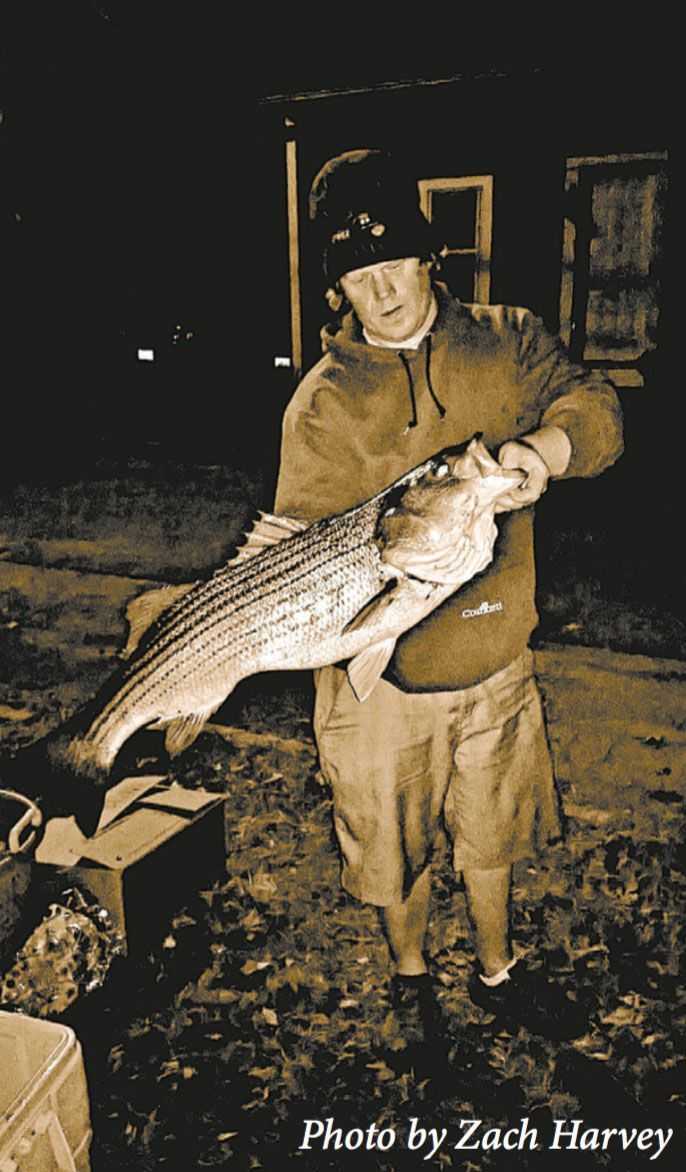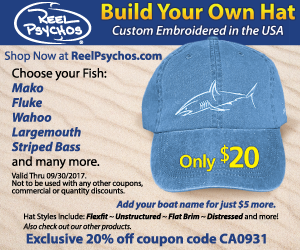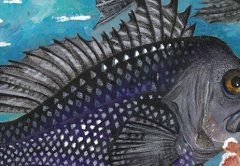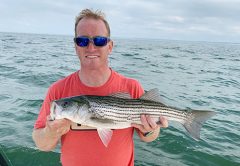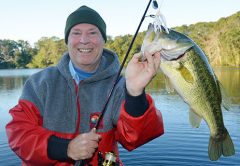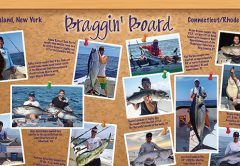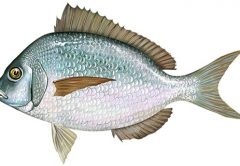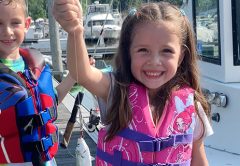Meat-Fishing for Conservation
Through the most challenging points in my own life, I have turned to a longer view
of American life—19th Century whaling, coal mining in the “Company Store” era, the influenza outbreak in 1918, the Great Depression, our World Wars, the early years of the Civil Rights Movement, Korea, Vietnam—for some all-important perspective on the actual nature and degree of my own suffering. The truth: My troubles are small and short-lived. That’s part one.
The second phase is to reground myself in the tangible world. This past fall, I fished a stretch of almost 21 days—calibrated my own rhythms against the wax and wane of moons, the push and pull of night tides, the clockwork of two estuarine ecosystems in South County. I wouldn’t say that I fished hard, exactly. But I fished late, often, and mostly alone, and ignored the endless flailing of everyone else’s fishing results. I found fish, caught fish, and kept going—stayed with the life I’d found. Most legal fish I killed. The shorts, and a couple better fish two nights I couldn’t fathom the chore of processing a catch, went back alive.
Surveying the stretch from the desolation of late November, I feel uncharacteristically whole on the threshold of the darkest months. I have lived according to the ancient mandate of survival in cold climes, nourished myself against the rigors of long hours in the cold, and put up a substantial surplus of food for the coming winter—not just for my own family, but for all my fish-eating neighbors.
I can’t deny that this last part—the killing and processing of what I catch—is central to the meaning I’ve always found in fishing. Fooling and fighting a fish is a gas. I’ve been conditioned by years of sport-fishing rhetoric to feel virtuous every time I release a fish I’ve landed, but frankly, I don’t find much enduring satisfaction in catch-and-release fishing. There’s something about inflicting pain on animals for fleeting personal amusement—or the playing-god aspect of freeing one fish and ending another—that I just can’t reconcile.
Once during my three-week realignment, I caught a disapproving glance from a nearby angler when I landed and abruptly dispatched a low-teens bass, severing the membranes that connect gill rakes and collar to bleed the fish quickly and completely. Sensing minor hostility in the air as I shouldered my rod and plugbag and headed for the car, I asked whether the guy ate fish. He said no. “There you have it,” I said. As he drew a long breath and prepared to deliver a predictable sermon, I cut him off. “I do eat fish.” He shook his head and muttered something in disgust. I didn’t stick around to argue with him.
One of the problems in contemporary debates about fishing issues is that non- fishing “stakeholders” under the broad umbrella of the “environmentalist” heading have polarized the discussion. A simplistic popular view divides fishermen into two camps: meat fishermen and conservationists. I see gray areas. For one thing, I maintain that catch-and-release is not the only version of the conservation ethic. In fact, to take a fish and eat it connects us to the coastal ecosystem on a visceral level humans seldom experience in the age of genetically-engineered crops and livestock saturated with hormones and antibiotics. It’s the disconnect between man and farm that has allowed ethically questionable practices to become industry standards within Big Food.
Twenty years ago, the adjectives that crop up like toadstools on trendy bistro menus— fresh, local, artisanal, seasonal, locally-sourced, free-range, hormone-free, non-GMO— would all have been redundancies. The very idea that your corn’s gene sequences had been scrambled to enhance seed drift, or that your summer tomato had come from, say, Argentina, would have been absurd beyond reasoning. That we now need all these qualifiers to sell a steak or highlight product freshness speaks to how horribly wrong things have gone in our two-decade descent into Big-Box hell.
By sharing what I catch with neighbors, I not only help them access the bounty of local waters, but expose them to fish of a quality they never knew existed. If you want people to take an interest in the fishing industry, the future of the sport whether they participate or not, you need to educate them—help them build a more personal connection to the water beyond the town swimming beach.
All ranting aside, as a good friend pointed out in a recent conversation about our similar fishing habits, I love the control I have over the fish that will ultimately end up on my family’s or friends’ plates. Not only do I know whence the fish came, but when I caught it, what it had been eating, the water temp, the condition of the creature from which the fillets came, the various durations the flesh had spent at various temperatures. The fish I catch I can store and process for culinary perfection, handling it gently to avoid bruising meat, bleeding the fish completely, gutting it immediately, letting it rest in ice to allow tissue to relax fully, cut it with utmost care, rinse it in several stages per tricks I’ve learned over years cutting, store it at perfect temp, and so on.
The take real pleasure in handing a friend or neighbor best-in-the-world fish is considerable. Just as satisfying is watching the flash of pleasant surprise on the face of a life-long fish-hater when he bites into a piece of sea bass I’ve caught, cut, prepped, and cooked for him/ her.
Really, it’s bigger than all that. The fillets in my fridge are tangible evidence that I still know my way around the food chain—that I can still, through the skills I’ve spent so long honing, feed myself and my community. The fish I take are not, as some overzealous catch- and-release missionaries might suggest, evidence of my greed, my lack of respect for the waters I fish, their bounty. Rather, they prove my hard-won understanding of the grounds, the forage, the predators, and the rest of the ecosystem I spend so much time sloshing around in. That understanding—those perfect fillets on a plate my daughter will devour with unusual gusto—is, in the same instant, a product of, a testament to, and a cause for, profound respect I maintain for the sea and the creatures it conceals.
Somewhere lost in the riptide of bills, projects in need of some time, family and work demands, the gnawing discontent of things you need but can’t afford, the pitch and yaw of incessant communication from all quarters, it’s never been easier to sink in a quagmire of intangibles. Our current culinary obsession with real, unadulterated, local ingredients reflects, in part, a culture’s reaction to “virtual” overload—a sudden yearning for simple things we can hold, weigh, and eat, things that satisfy a need we’re compelled to answer with or without a marketing campaign. Whatever else happens, we gotta eat.
Fishing holds its ground in my chaotic adult life because somewhere beneath my attitudes about conservation or frustration over regulatory ineptitude, fishing is about standing in a real place, acting out a ritual tied to a need as real and as compelling as the survival of our own species. Every moment my feet are rooted in inlet gravel, and I squint into the 3 a.m. murk trying to place a shower of bait I heard but couldn’t see; or sneak a cast under a tiny two-lane bridge to work a drop-off that’s been holding good fish at this point in the tide; or listen to the whoosh of dark water boiling over car-sized stones, I am a man with a mission and a purpose so much larger than mere sport. The nights I take a fish, the ritual spills inland, all the way home.

